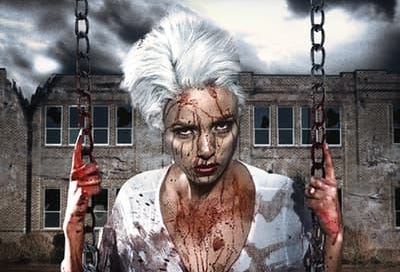Image: poster for the 2014 film Deranged. Who knows but it maybe even served as inspiration. tubitv.com
The academic year 2018-2019 was announced to its fellowship by its captain as being the Reuzegom student fraternity’s deranged brutal year, after 2017-2018, which had been but a brutal year. So deranged was it, it resulted in the death of one of its candidate members, Sanda Dia.
Eighteen of the club’s members are now on trial, charged with culpable homicide: they are accused, by their nonchalance and lack of foresight, of having procured Mr Dia’s death. He was 20 years old. Belgium’s society and the matriculated student body of Leuven University are in mourning for Mr Dia, and many cry for justice in his name. Sanda Dia, the victim; the Reuzegom fraternity, his killers.
From the accused and their counsel have come a gamut of legal argument and an outpouring of regret. Piety has been high on the order. Some of those accused of the crime underwent, but a year before, trials and travails of a similar nature to those to which Dia was subjected. But there is one question, one shrouded by its very nature in speculation, but one that is nonetheless worthy of consideration: had Sanda Dia not died on 8 December 2018, by how much of an increment would the brutal year, which had then become a deranged brutal year, have increased in intensity of brutality in the next year; in the year thereafter, and so forth? At what point would a call have come to de-escalate the brutality being inflicted on the candidates for Reuzegom membership? And how readily would an ear have been lent to any such cry?
It is bordering on the callous, I recognise, but to what extent would Sanda Dia himself, had he survived, been the very one inflicting the hurt and suffering on the next year’s candidates? After all, it is members who underwent such trials just one year previously who find themselves now on trial for what they did but 12 short months later. Sanda Dia, the victim in 2018: could he have been a potential accused in 2019? Mr Dia has been elevated by university and society alike to a position not that far off being akin to sainthood: the victim of the brutality. Sainthood was accorded to Thomas More, who was also subjected to brutality at the hands of powers that be; but it was accorded in sure knowledge that More would never himself have condoned the infliction on another human being of brutality the likes of which he suffered.1 The difference lies in More’s being challenged by a sea change of political circumstances to disavow his belief in God, and Dia’s being inducted into a system whose very functioning seems, by all accounts, to have depended on the infliction of such suffering. More wanted out; Dia wanted in.
In far-off Moscow there is a similar club, and, unlike the Reuzegom fraternity, it has not been disbanded meantime. In Moscow it’s called the government. Much of what it engages in as activity is deranged. It condones with an absence of condemnation acts of murder, of rape, of detention, of terrorism, of fear-provocation, of threats, and it cocks not an ear to the suggestions or cries within its ranks to temper its derangedness. If consent should be deemed in the case of Sanda Dia to have exculpated the inflictors of suffering on the candidates, then a point of culpability was nonetheless reached when the candidate in question avowed his failure and expressed a wish to stop the torture. Indeed, in every sadomasochistic game known to the world of sexual perversion, there is a stop word, a bond of agreement between sadist and masochist that says so far, but no farther. When that point is breached and no stop comes when a stop is called for, then criminality, if deemed absent up to that point, does at that point enter the fray. The slave master is thereafter as deranged as deranged can be, because he then flouts the law established between him and his subject, regardless of what the law of the land has to say on the matter.
We are told that those who survive such ministrations become like blood brothers, bound in harmony and friendship. We know also that Moscow’s governance demands a loyalty without breach, without break, without let-up. Moscow’s government rewards with riches those who pledge their souls, nothing less, to their leadership. And what of Reuzegom? Did it, too, demand such pledges of allegiance and affiliation?
This trial has revealed much about what went on within the dark cavern of Reuzegom. What, then, of its members who have, over the years of its existence, lived the life, walked the walk but who remain silent on talking the talk? Where are they now? And where ultimately would the third-year civil engineering student known as Sanda Dia have been had he, like them, survived the walk over burning coals that was the Reuzegom fraternity hazing?
What level of derangedness is still out there in our society, hardened by such rituals and inured to an infliction of suffering that passes in their minds for conscionable? Where are they now? For they are not in Moscow.
Postscript 2025: this is in fact a bold assertion by me—Thomas More was known during his lifetime to have avidly advocated the pursuit and punishment of those he deemed heretics. More’s saintly record is not quite so perfect as one might sometimes imagine. However, he did go to his death on a matter of divine belief, and, for that if nothing else, deserves his holy appellation.




